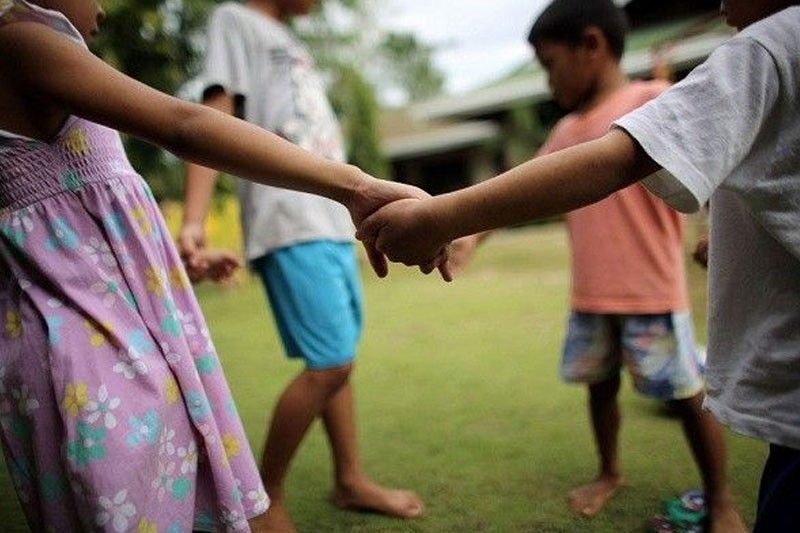Child porn transactions hit P113 million in 6 months

MANILA, Philippines — Suspicious transactions worth P113.1 million related to child pornography were reported in the first half of last year, almost double the P65.8 million booked in 2019 as the government stepped up its campaign against the sexual abuse of children, the Anti-Money Laundering Council (AMLC) revealed.
In a public bulletin titled “Child pornography in the Philippines,” the AMLC showed the volume of suspicious transaction reports (STRs) reached 27,217 from January to June 2020 or more than 2.5 times the 10,627 reported for the entire 2019.
“STRs submitted in the first semester of 2020 have already exceeded STRs submitted in 2019,” the AMLC said.
The financial intelligence unit pointed out that STRs related to child pornography reached 37,844 from January 2019 to June 2020, significantly higher than the 2,611 reported from 2015 to 2018.
It added that the STR submissions have increased by 1,654 percent from 2018 to 2019 and 156 percent from 2019 to the first semester of 2020.
“This is expected to increase further until the end of 2020,” AMLC stated in the report.
The observed increase in STRs could be attributed to the sharing of the AMLC study on child pornography and the improved collaboration and cooperation of the AMLC with its partner covered persons.
As a result, AMLC said STRs filed by covered persons are based on existing indicators and not merely triggered by news reports. Moreover, various awareness campaigns and information exchange of the AMLC, law enforcement agencies and other financial intelligence units as well as private organizations also contributed to the increase in STR submissions.
The report showed 97.3 percent of the total STRs were submitted by money service businesses followed by electronic money issuers with 1.3 percent, banks with 1.2 percent and virtual currency exchanges with 0.1 percent.
In terms of value, money service businesses cornered 89.4 percent of the total amount from January 2019 to June 2020 followed by electronic money issuers with 6.9 percent, banks with 3.6 percent and virtual currency exchanges with 0.03 percent.
“The accessibility of money service businesses in most areas, including remote rural locations, may still be the primary reason for using them to channel funds. Some payments were also made via banks, noting that offenders and facilitators prefer to use traditional payment methods through money service businesses and banks,” AMLC said.
The financial intelligence unit also noted the use of electronic money issuers and virtual currency exchanges via electronic wallets accessible through mobile phones and other devices.
Of the total value from January 2019 to June 2020, the report showed 68.4 percent pertain to international remittances from the US, Australia, Canada, Saudi Arabia, United Kingdom, Norway, United Arab Emirates, Korea and Singapore.
Pampanga topped the list where recipients of remittances related to child pornography are located in terms of volume and value. It was followed by Cebu, Bulacan, Cavite and Quezon City.
The report also showed several domestic remittance transactions made across regions with Rizal, Cebu, Davao del Sur, Bohol and Taguig City topping the list in terms of value and volume.
“The report also revealed a possible existence of organized crime groups and syndicates involved in child exploitation activities due to multiple links between senders and beneficiaries. Child pornography in the Philippines is predominantly cross-border in nature, but localized setting is also evident because of the domestic remittances related to child pornography,” AMLC said.
Meanwhile, Malacañang urged people yesterday to report to the police any information about the alleged selling of sensual photos and videos by financially troubled students as the National Bureau of Investigation and the justice department’s cybercrime office vowed to strengthen efforts against online human trafficking.
The Philippine National Police (PNP) also ordered its Anti-Cybercrime Group (ACG) to monitor such activities in social media as PNP chief Debold Sinas called on parents and the Department of Social Welfare and Development to intervene if these acts are done voluntarily.
The agencies noted reports of some students holding a “Christmas sale” of lewd photos and videos, selling videos and photos to raise money allegedly for their internet bills and gadgets for online classes.
Various sectors have expressed concern that the practice makes students vulnerable to sexual exploitation and unlawful acts.
“Report that to the police because we have laws to punish such acts,” presidential spokesman Harry Roque said at a press briefing.
Sen. Sherwin Gatchalian, chairman of the Senate’s basic education committee, previously said there have been reports that the students are selling their sensual content through social networking site Twitter.
Justice Secretary Menardo Guevarra has also warned the public against traffickers who are taking advantage of the pandemic lockdowns to search for potential victims. – Alexis Romero, Neil Jayson Servallos
- Latest
- Trending






























